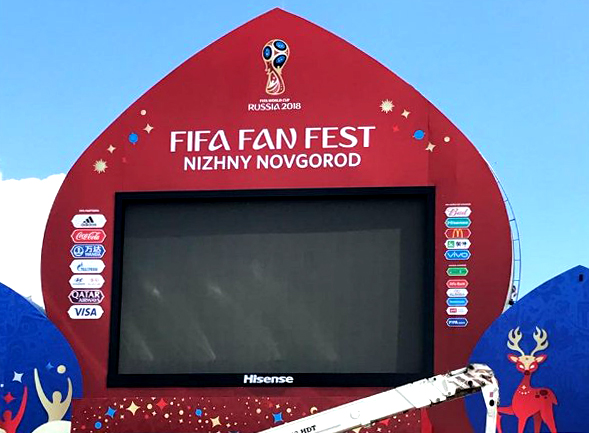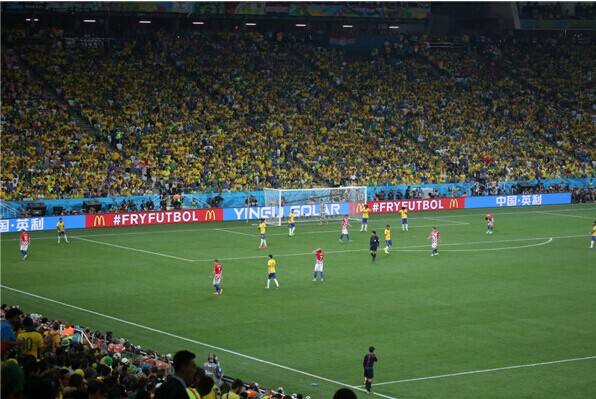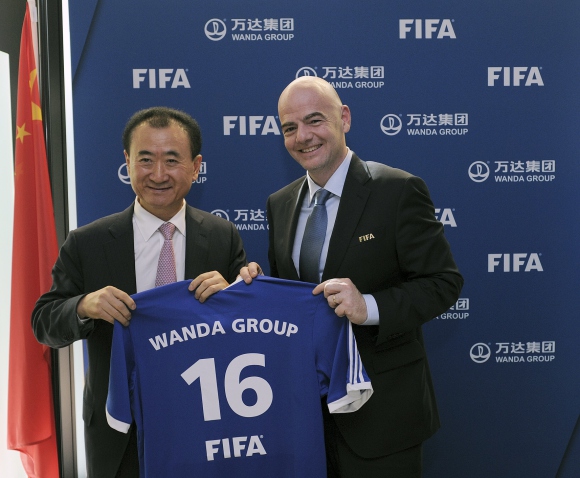The FIFA World Cup is the biggest football fiesta for fans around the world, and also the biggest marketing platform for all brands.
This summer, China brands have taken the center stage of the World Cup, and their marketing strategies vary from one another.
China's Hisense offered its giant LED screens to the press conference room of Luzhniki Stadium, which will host both the opening match and the final of the World Cup.

A FIFA Fan Fest screen in Nizhny Novgorod (file photo)
The FIFA Fan Fest in every host city will also feature Hisense's giant screens.
When Russia kicks off against Saudi Arabia in the Luzhniki Stadium in Moscow on June 14, fans will be treated to a seven-minute advertisement for Mengniu Group’s Inner Mongolian milk and drinkable yoghurt.

2018 FIFA World Cup sponsors
Throughout the month-long tournament, Hisense and Mengniu, along with the other major Chinese sponsors Wanda and Vivo, as well as regional sponsors Yadea, YGE and Zhidianyijing VR — will make their mark through the football world championship.
Sports marketing were previously out of the league for many Chinese companies.
However, since Hisense splurged for a sponsorship deal with the UEFA over the European Championship in 2016, all levels of China brands have started battling for all kinds of World Cup-related marketing opportunities.

China's solar panel manufacturer Yingli appeared at FIFA World Cups in 2010 and 2014.
World Cup sponsorship has high requirements, and demands long-term huge investment.
Compared to the mature Western sports market, China’s markets still needs develop, but there are only a few brands that are willing to and have the patience for this kind of investment.

China's Wanda Group becomes a top-level FIFA sponsor in 2016. (Photo: FIFA)
Most China brands still tend to take the World Cup as an unmissable hot sports event held every four years. Their purpose is just to carry out marketing with a limited budget, which can easily lead to signing famous football stars as their brand ambassador.
Despite the big spending of the seven major Chinese sponsors, this is the strategy most brands have adopted this summer.


